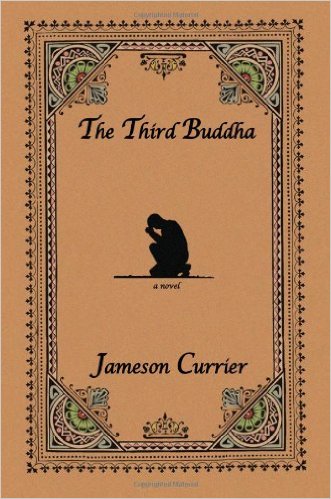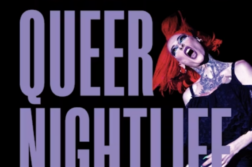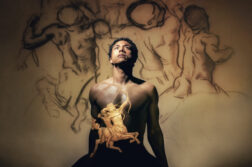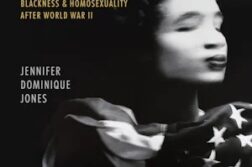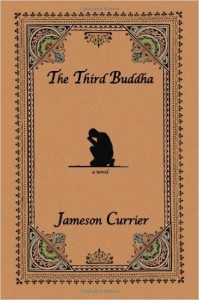 The Third Buddha
The Third Buddha
by Jameson Currier
Chelsea Station Editions. 328 pages, $20.
This ambitious novel tells two stories, alternating between a young gay man struggling to find his place in New York after 9/11, and a journalist in Afghanistan searching for his wounded lover and business partner. Ted arrives in New York after the terrorist attacks to locate his older gay brother Phillip. Still closeted himself, and failing at law school, he moves into Phillip’s Chelsea apartment and begins to learn more about his brother, mainly from his friends, who come by to offer their condolences and try to guide Ted as he tentatively explores gay life in the city. He has several encounters with various men, notably Rico, a shady young Latino he met at a compensation meeting, with whom he has a tumultuous, ultimately failed relationship. Stan, one of Ted’s one-night stands, provides the connection to the Afghanistan story. Stan is an American medical worker recently returned from the war-torn country. On one of his last assignments, he drives Jim, an injured reporter, to a military base to recover. While healing, Jim frantically searches for his partner Ari, wounded in the same attack but gone missing. The novel flashes back to the beginnings of their professional and romantic relationship, and shows their reason for being in the country: to cover the search for the third Buddha of the book’s title, a giant statue supposedly hidden after the Taliban destroyed two similar figures. Meanwhile, Ari, mistaken for an Afghani due to his ethnicity and with no memory of his identity, finds himself living with a native family while trying to recover. Filled with remarkable characters, incredibly rich details, and a compelling story, the novel balances exotic locations and religious quests with the ordinary yet powerful struggle for identity and love in the modern world.
Charles Green
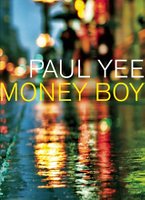 Money Boy
Money Boy
by Paul Yee
Groundwood. 184 pages, $12.95
This new short novel embodies two classic literary motifs: the “young man from the provinces” tale and the immigrant’s narrative. In this case, the young man is Ray, a Chinese-born gay teen who lives in Toronto with his father and stepmother, longing for a better life. Ray faces many of the frustrations of a typical teenager—he fights with his father and dreams of having more freedom. To escape these difficulties, he loses himself in the world of online gaming, achieving a kind of fame within the gamers’ circle as “Steel,” a hyper-masculine hero in the war game “Rebel State.” He also uses his computer to explore gay porn sites, and when his snooping father discovers these on-line forays, the two quarrel, and Ray is kicked out of the house. He seeks solace in Toronto’s gay neighborhood, but he doesn’t quite find it. Misadventures and misfortunes ensue—a stolen laptop, assorted other deceptions and bad luck—so Ray decides to hustle as a “money boy,” joining other young men of “Boy Street” who offer themselves for pay to older clients. Yee is an award-winning author of children’s books, and Money Boy, which is clearly intended for the young adult audience, is an easy-to-digest story designed to appeal to gay immigrant teens. It explores not only the theme of emerging gay sexuality but also the complications of being a gay teen dealing with linguistic barriers and cultural displacement. Ray’s assimilation is a lively romp and offers at least a few surprises.
Jim Nawrocki
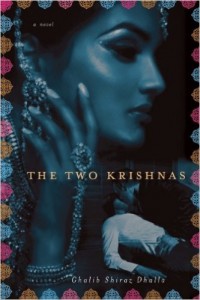 The Two Krishnas
The Two Krishnas
by Ghalib Shiraz Dhalla
Magnus Books. 348 pages, $14.95
This well-crafted novel relates the tragic consequences when a seemingly happily married wife discovers that her bank executive husband is having an affair with an illegal immigrant young enough to be the couple’s college-age son. Pooja, born in India and raised in Kenya, flees that country with her husband Rahul after a horrific attack, hoping for a better life in L.A. Deeply observant of her Hindu roots, she takes great pride in both her marriage and her son Ajay, a boy completely at home in America. All her illusions come crumbling down when she learns of Rahul’s relationship with Atif, a gay Muslim working in a local bookstore. The novel alternates between Pooja, Rahul, and Atif’s points of view, providing glimpses into their earlier lives, although it withholds the events in Kenya until nearly the end. Atif’s story in particular— born in India, struggling with his sexuality and early sexual experiences that
conflict with his family’s values, searching for a meaningful relationship with a man in L.A.—makes him highly sympathetic. Well-versed in literature and philosophy, he finds many tales of same-sex love in both Hindu and Muslim culture that help him to reconcile his desires
with his heritage, although this cannot ease the pain of his parents’ hatred when he comes out to them over the phone. Although the ending veers towards melodrama, all three main characters struggle to balance their passions with their desire for domestic bliss, and the quest for true love with their conservative
culture.
Charles Green


